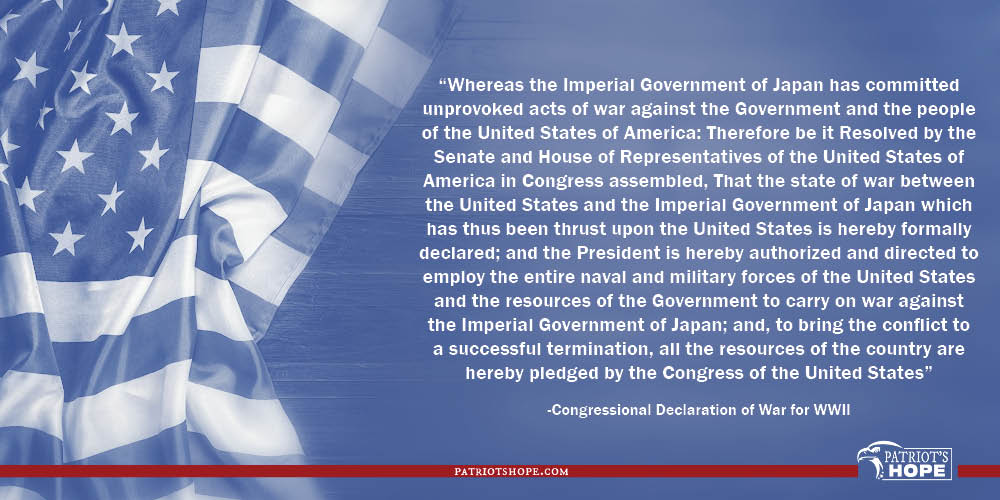Hello again! In previous articles, “A Rare and Fun Day in a Constitutional Nerd Kinda Way”, and “What Can Congress Do?”, we have been working on covering all of the enumerated powers of Congress that are listed in Article 1, Section 8, of the U.S. Constitution. In many articles, we talk a lot about things the federal government cannot rightfully do, but this list in Article 1, Section 8, is the primary list of things Congress CAN do. It is important we know these! It is important that we hold our Representatives and Senators accountable to operate only within their limited powers, but we also need to make sure they ARE doing those things which it is their duty to do. So, today we want to pick up where we left off in the discussion.
“To define and punish Piracies and Felonies committed on the high Seas, and Offenses against the Law of Nations;”
WIsdom from Gouvernuer Morris
At the time of independence, the separate states dealt with piracies differently. This was identified as an area that would be more effective if the federal government dealt with piracies on behalf of all the states. This power also granted to Congress the power to “Define” piracies and felonies which also ensured all the states were playing with the same set of rules. Gouverneur Morris advocated for the use of the word “define” here, because he felt that the law of nations was, “Often too vague and deficient to be a rule.”
The “Law of Nations” mentioned here is an interesting concept we need to understand. This is where the U.S. has taken authority to, for example, hold war tribunals for atrocities committed by foreign officials during war times. The very fact that one nation can hold another nation’s officials accountable demonstrates plainly that our Constitution was built upon a principle that man’s laws are subordinate and subject to God’s Laws that constantly sit above even the highest human laws of our land.
“To declare War, grant Letters of Marque and Reprisal, and make Rules concerning Captures on Land and Water”;
declaring war
Declaring war is something I believe we need to hold Congress accountable for. The last time this nation formally declared war was for World War II. On December 8, 1941, Congress passed a resolution including the following language:
“Whereas the Imperial Government of Japan has committed unprovoked acts of war against the Government and the people of the United States of America: Therefore be it Resolved by the Senate and House of Representatives of the United States of America in Congress assembled, That the state of war between the United States and the Imperial Government of Japan which has thus been thrust upon the United States is hereby formally declared; and the President is hereby authorized and directed to employ the entire naval and military forces of the United States and the resources of the Government to carry on war against the Imperial Government of Japan; and, to bring the conflict to a successful termination, all the resources of the country are hereby pledged by the Congress of the United States”
Congressional Declaration of War for WWII

congressional declaration of war?
To me, this declaration communicates the national will and commitment to conduct the war. There were other declarations of war associated with World War II, the latest being a declaration of war in June 1942 against Bulgaria, Hungary and Rumania. None of the military activities since that time, including Korea, Vietnam, or the extended operations in Iraq and Afghanistan, have received a formal, Congressional Declaration of War. When discussing these other operations, people point to other actions of Congress like (for Vietnam) the Gulf of Tonkin Resolution, or maybe the War Powers Act of 1973 for others. I understand there are times when we may need to act quickly, but I also strongly feel that if we are going to send Americans into harm’s way, we owe it to those families, and to our Constitution, to require Congress to have the guts to accomplish their duty and do the difficult vote.
Congress should man up
If Congress passes a declaration like the one I quoted above from World War II, then each of us would know how our Representatives voted and we can hold them accountable. I feel this is important. A joint resolution, or a law passed by Congress cannot change the Constitution. So they can’t give that authority away without a Constitutional amendment. The Constitution requires Congress to declare war. I believe we should not allow them to shirk that duty or to pass it off to the President or especially not the UN (in the case of Korea). If we as a nation need to go to war, well, hopefully we will reconsider. But, if we cannot avoid it and we have to send Americans into harm’s way, let’s require our officials in Congress to do their part and pass a formal declaration.
“Granting Letters of Marque and Reprisal” is essentially commissioning private vessels to conduct operations as national assets. (i.e., operations that would normally be accomplished by the U.S. Navy). It makes sense that the authority to essentially hire a privateer navy vessel would need to be the same as those who fund the construction of U.S. Navy vessels, and therefore rests with Congress.
“Making rules concerning captures on land and water”, refers to the rules for how the United States would handle situations regarding things seized, or captured, during military operations. For example, if an enemy ship is captured, what are the rules that determine what we will we do with it? Congress has the responsibility to make those rules.
Favorite resource
I want to point out that in looking at these enumerated powers of Congress, I have leaned heavily on especially two resources (as I do anytime I need a line-by-line examination of the text of the Constitution). My favorite resource for this purpose is The Making of America, by W. Cleon Skousen. This excellent resource is available through the National Center for Constitutional Studies. I would encourage you to visit their site – especially their store 😊 – and you will find lots of great stuff that will faithfully and accurately teach you the principles of our Constitutional form of government.
Another favorite resource
Another great resource for studying the Constitution line by line is put out by The Heritage Foundation. It is called The Heritage Guide to the Constitution. Make sure to check it out! It is very important for us all to learn the legitimate, constitutional duties of Congress. It is only by knowing the proper duties that we will recognize the illegitimate roles they do so often! We should be able to finish up the list of Congress’ enumerated powers in our next article!







0 Comments